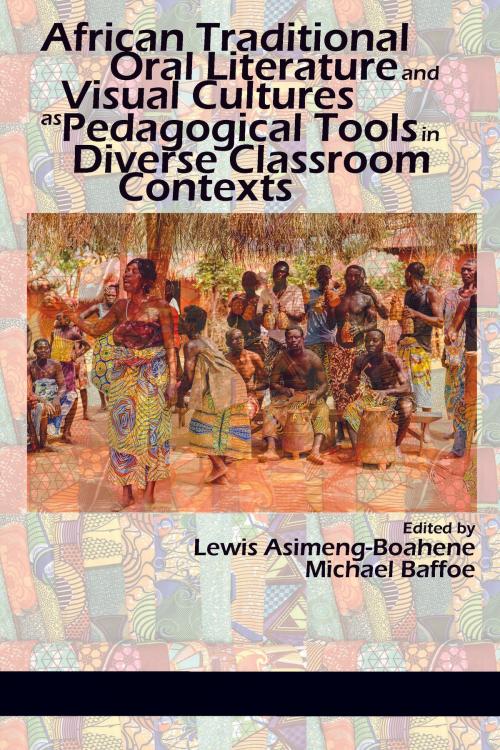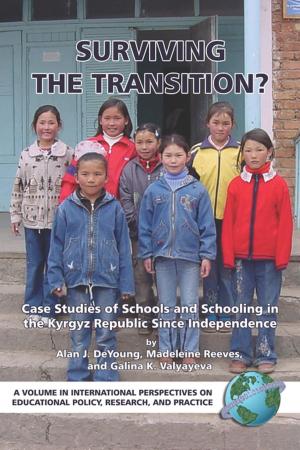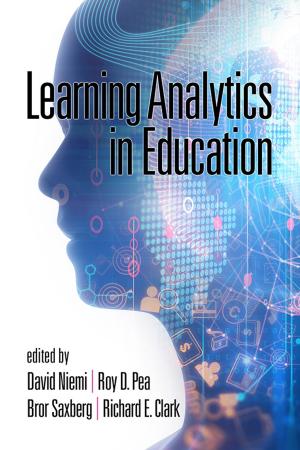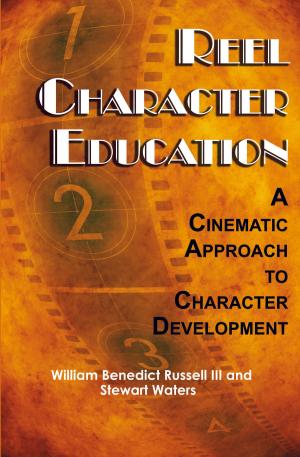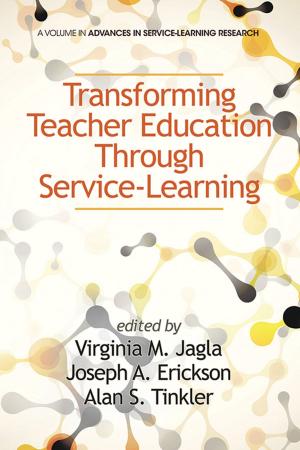African Traditional Oral Literature and Visual cultures as Pedagogical Tools in Diverse Classroom Contexts
Nonfiction, Social & Cultural Studies, Social Science, Cultural Studies, African-American Studies, Reference & Language, Education & Teaching, History| Author: | ISBN: | 9781641132534 | |
| Publisher: | Information Age Publishing | Publication: | June 1, 2018 |
| Imprint: | Information Age Publishing | Language: | English |
| Author: | |
| ISBN: | 9781641132534 |
| Publisher: | Information Age Publishing |
| Publication: | June 1, 2018 |
| Imprint: | Information Age Publishing |
| Language: | English |
This book, the second in the series, is a distinct exploration of how educational policy makers, curriculum developers, educators, learners and social activists can utilize the hitherto untapped rich resource of African traditional oral literature and visual cultures. These are epistemological reservoirs and invaluable pedagogical tools in the delivery of content in the classrooms of the present global village, most of whom contain diverse student populations from varying backgrounds. The content of the book is thus designed to help expand educators’ repertoire of understanding beyond the hitherto “conventional wisdom”, most of which are either outdated or are colonial impositions on former colonial entities. Our motivation for pulling together this anthology was due to the fact scholars, educators and educational policy makers have hitherto paid little attention to the epistemological and pedagogical value of Traditional Indigenous Knowledge systems (TIKS). Our objective has been largely achieved by this anthology in the sense that the research perspectives of the contributors to this effort have enhanced the hitherto limited exposure and knowledge about traditional oral literature and visual cultures in Africa. The torch that has been lighted from this endeavor heightens the epistemological and pedagogical implications of TIKS. In launching this book, we are extending a clarion call to researchers and disciples of Indigenous Knowledge systems in Africa and elsewhere to seize this opportunity and interest generated by this endeavor to undertake more studies in this area. Our current efforts were focused mainly on Africa TIKS systems, but we strongly believe that there are similar and equally powerful and important TIKS systems in other parts of the world, Asia, the Far East, Central and Southern America as well as the Caribbean that are longing for exploration and exposition. It is therefore our fervent hope that exploration and dissemination of knowledge in this field will continue with the flame lighted from this endeavor. We believe that these efforts will greatly enhance awareness an otherwise neglected and almost forgotten, but important aspects of knowledge creation and dissemination, especially about traditional and hitherto unwritten histories and knowledge systems around the world. These undertakings will help to broaden the conceptualization of what constitutes global knowledge within the current reality of globalization.
This book, the second in the series, is a distinct exploration of how educational policy makers, curriculum developers, educators, learners and social activists can utilize the hitherto untapped rich resource of African traditional oral literature and visual cultures. These are epistemological reservoirs and invaluable pedagogical tools in the delivery of content in the classrooms of the present global village, most of whom contain diverse student populations from varying backgrounds. The content of the book is thus designed to help expand educators’ repertoire of understanding beyond the hitherto “conventional wisdom”, most of which are either outdated or are colonial impositions on former colonial entities. Our motivation for pulling together this anthology was due to the fact scholars, educators and educational policy makers have hitherto paid little attention to the epistemological and pedagogical value of Traditional Indigenous Knowledge systems (TIKS). Our objective has been largely achieved by this anthology in the sense that the research perspectives of the contributors to this effort have enhanced the hitherto limited exposure and knowledge about traditional oral literature and visual cultures in Africa. The torch that has been lighted from this endeavor heightens the epistemological and pedagogical implications of TIKS. In launching this book, we are extending a clarion call to researchers and disciples of Indigenous Knowledge systems in Africa and elsewhere to seize this opportunity and interest generated by this endeavor to undertake more studies in this area. Our current efforts were focused mainly on Africa TIKS systems, but we strongly believe that there are similar and equally powerful and important TIKS systems in other parts of the world, Asia, the Far East, Central and Southern America as well as the Caribbean that are longing for exploration and exposition. It is therefore our fervent hope that exploration and dissemination of knowledge in this field will continue with the flame lighted from this endeavor. We believe that these efforts will greatly enhance awareness an otherwise neglected and almost forgotten, but important aspects of knowledge creation and dissemination, especially about traditional and hitherto unwritten histories and knowledge systems around the world. These undertakings will help to broaden the conceptualization of what constitutes global knowledge within the current reality of globalization.
